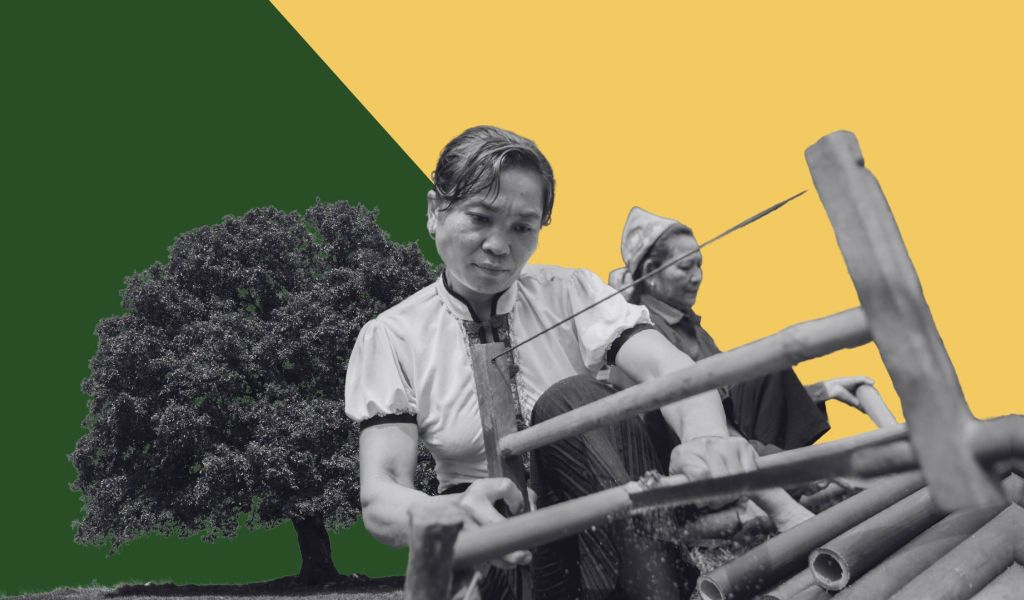Reaching to our roots: Traditional ecological knowledge to ratchet up climate action

The Global Stocktake which will underpin the 28th Conference of the Parties to the United Nations Framework Convention on Climate Change presents a daunting reality. Despite efforts since the 2015 Paris Agreement, the assessment reveals that even with full implementation of Nationally Determined Contributions, the reduction in emissions falls alarmingly short of the 27% required to stay below the 2°C threshold. This is far from the globally agreed 1.5°C target, which would necessitate a 45% reduction by 2030 against 2019 emission levels. If we surpass the 2°C threshold, systemic instability could potentially trigger irreversible environmental changes, adversely affecting ecosystems, communities and economies worldwide.
This stark revelation underscores two immediate imperatives: the inadequacy of business-as-usual approaches in solving our climate problems and the urgent need to accelerate adaptation to imminent climate impacts. The Global Stocktake highlights the crucial role of Indigenous Peoples in this collective effort. The involvement of Indigenous Peoples and local communities in addressing climate change transcends social justice. It also represents a pragmatic and vital strategy for the planet's survival.
Indigenous Peoples and local communities, as traditional guardians of forests and biodiversity, have effectively managed these resources over centuries with their traditional ecological knowledge. Evidence supports the argument that forests managed by communities have better outcomes than other forest management regimes. It is time to humbly learn from the wisdom of Indigenous Peoples and local communities encompassing worldviews and practical knowledge to navigate environmental changes. This learning involves embracing less linear and consumptive ways of living and acquiring concrete knowledge for adapting to environmental shocks.
Indigenous Peoples and local communities have observed increased temperatures, erratic weather, droughts, wildfires and a surge in natural disasters, along with changes in flora and fauna due to climate shifts. They have utilized traditional management systems for food and resource security and leveraged cultural networks and indigenous institutions during shocks. Their strategies, including agroforestry, intercropping, diversified livelihoods and integrated home gardens, epitomize resilience and sustainable natural resource management. These practices, combined with forest preservation, form a critical part of their approach to living in harmony with nature.
As part of the Asia Pacific Climate Week held in Johor Bahru, Malaysia, RECOFTC, with support from the Rights and Resources Initiative, organized an action hub event to leverage and transfer traditional ecological knowledge for adaptation. This initiative stems from the urgent need to systematically collect and document examples of rapidly eroding traditional and ecological knowledge and facilitate knowledge exchange among Indigenous Peoples, local communities and the public at large. Such networking is crucial to validate and recognize their unique role in climate action, acknowledging the invaluable contributions they make in our collective response to climate challenges.
Consider the mid-Himalayas of Nepal, where communities have harnessed the power of traditional ecological knowledge to address health challenges, including complex mental health issues like schizophrenia. This is not mere folklore. It represents a sophisticated understanding of the medicinal properties of local flora, honed over centuries. Their practices offer potential pathways for future pharmaceutical innovations, demonstrating the contemporary relevance of ancient wisdom.
In Myanmar's Tanintharyi division, the Karen Indigenous Peoples' approach to agrobiodiversity preservation is a lesson in resilience. While applicable to climate shocks, it is currently supporting their survival under socio-political shocks as well. Where crops fail or are not accessible, community members know exactly what can be safely consumed from the forest. Their gender-based knowledge system in seed preservation underpins not just food security but also a harmonious coexistence with the natural world. This is an essential strategy in an era of biodiversity loss and climate unpredictability.
Further east, in Mindanao, Philippines, the Higaonon elders' ability to predict environmental calamities through observations of cloud patterns and wildlife behavior is a testament to their intimate connection with their surroundings. Such knowledge is invaluable for disaster preparedness and risk reduction, offering a model for community-based climate resilience.
Asia's long history of habitation testifies to the depth of ecologically localized knowledge and adaptation. This rich traditional ecological knowledge, combined with modern techniques like remote sensing and geographic information systems in approaches such as Participatory Land Use Planning and ecosystem accounting and valuation, can mainstream sustainable land uses supporting climate mitigation and adaptation.
As we confront the limitations of our current technologies and approaches, understanding, applying and transferring traditional ecological knowledge offers cost-effective, locally accessible solutions. With a comprehensive and ‘all in’ approach required to combat the climate crisis, integrating traditional ecological knowledge and recognizing the crucial role of Indigenous Peoples and local communities are paramount. Their wisdom and capabilities, if scaled up and replicated, can contribute to our global climate strategies and an overall more sustainable way of existing on this planet.
Our journey requires a seamless integration of modern science with traditional wisdom, a fusion essential for forging a resilient and sustainable future. The insights from Indigenous Peoples and local communities hold the potential as one tool to guide humanity effectively through the challenges of our era. Their time-tested wisdom, when combined with contemporary strategies, can create a powerful synergy, leading us to innovative solutions in our collective fight against climate change.
As the world convenes at COP28 in Dubai, we are not merely tasked with setting targets. We stand at a pivotal moment that demands a fundamental reevaluation of our relationship with the environment. The knowledge and practices of Indigenous Peoples and local communities can be one of the torches lighting the way forward, offering not just an alternative worldview and toolkit on how we can live sustainably, but uplifting and validating some of our most deserving citizens. This is the moment to harness this collective wisdom, ensuring a future that is not only viable but also vibrant and equitable for all.
###
Regan Pairojmahakij is senior program officer for landscape collaboration in a changing climate at RECOFTC.
RECOFTC's work is made possible with the continuous support of the Swiss Agency for Development and Cooperation (SDC) and the Swedish International Development Cooperation Agency (Sida).




